UN INT Intro Text w/ Centered Large Responsive Image - *Important Note* You must UNLINK this shared library component before making page-specific customizations.
Yet another PETA investigation into the cruel kopi luwak industry shows that despite an international outcry about the suffering of civet cats following our previous investigations spanning more than a decade, nothing has changed. Kopi luwak, or civet coffee, produced from beans excreted by civet cats, continues to be sold globally despite the horrendous conditions in which these animals are kept. PETA’s latest investigation into farms in Java, Indonesia, found sick, injured, and dying civet cats suffering in tiny, filthy cages encrusted with their own feces. Suffering from open wounds and battling parasitic infestations, some of the malnourished animals were too sick to even move. PETA’s investigator found one critically ill civet cat, who was too weak to even stand, lying motionless in her squalid cage and alerted the farm owner—who said they wanted to “throw (the animal) away.” The investigator rushed the animal to a veterinary clinic, but they could not be saved.
Binturongs Illegally Held and Exploited for Coffee
PETA’s latest investigation also revealed that one kopi luwak farmer fed coffee cherries to caged, illegally held binturongs—an animal red-listed as “vulnerable” on the International Union for Conservation of Nature Red List of Threatened Species—and that the excreted beans were fraudulently labeled and sold as civet coffee.
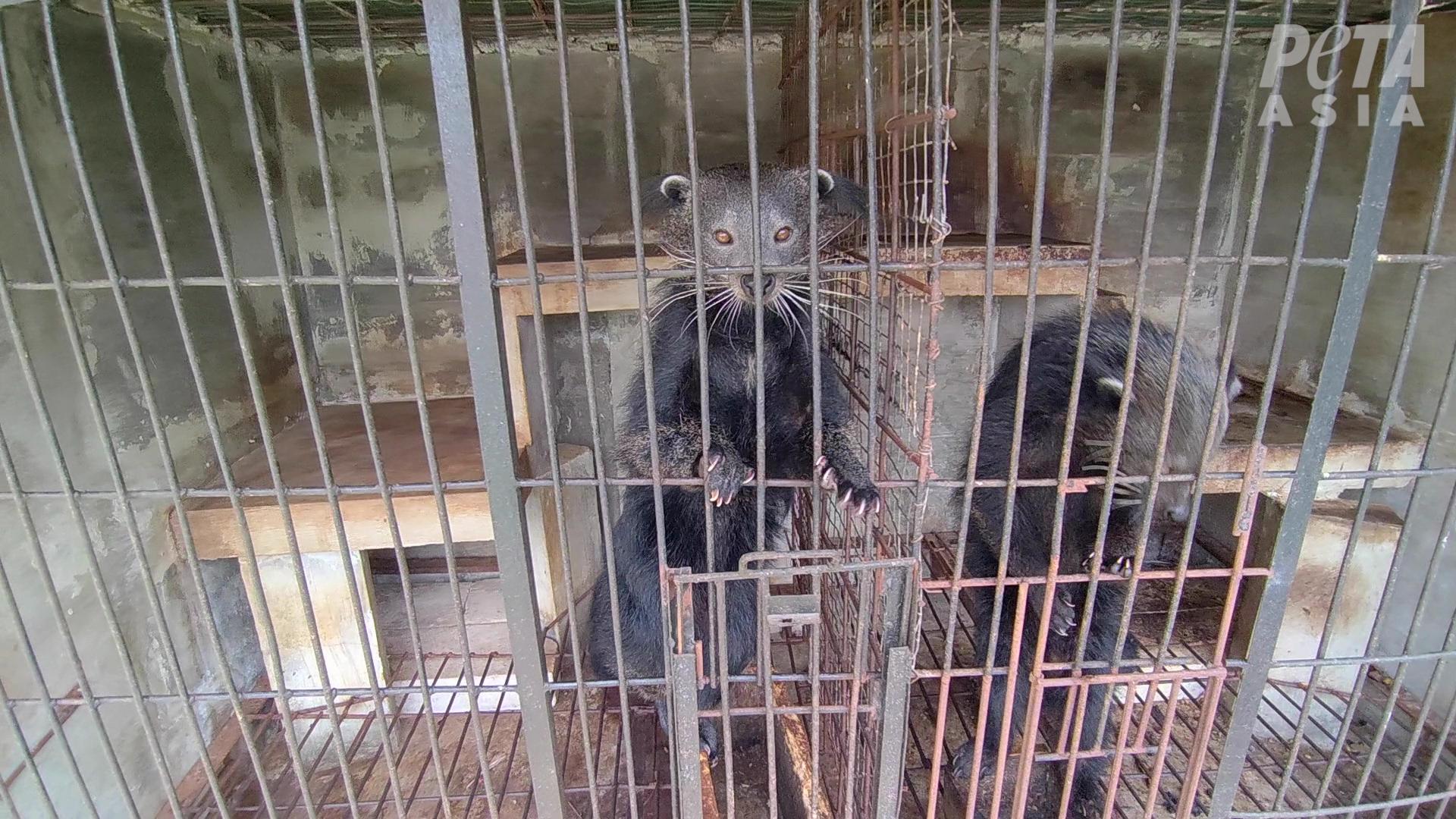

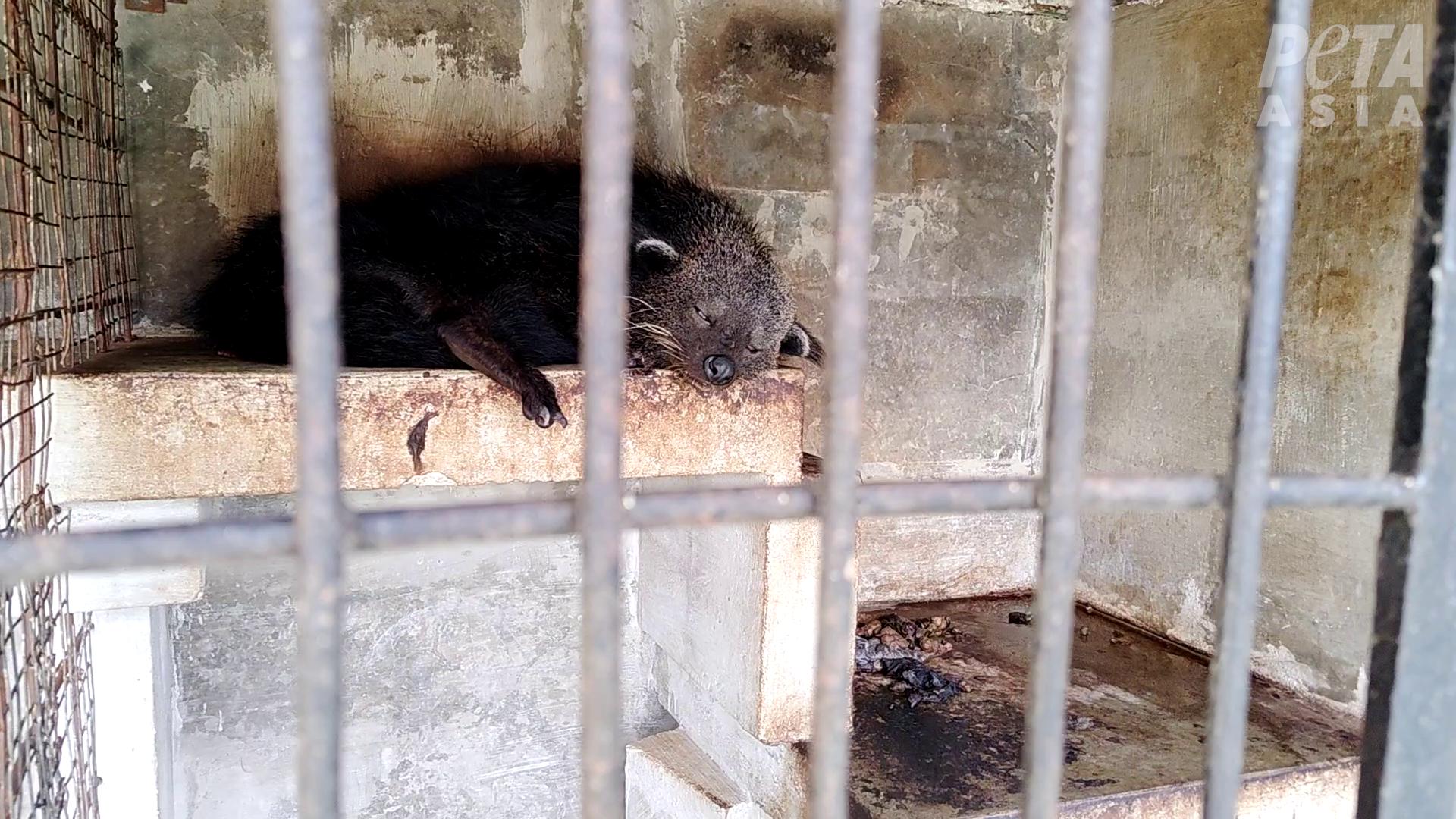
A Decade of Exposing Kopi Luwak Cruelty—and the Abuse Continues
Multiple PETA investigations have repeatedly shown the toll that constant confinement to a tiny cage, often made from wire, has taken on sensitive Asian palm civet cats. At farms, they are often seen incessantly pacing and spinning inside their barren cages—signs of extreme psychological distress caused by the anguish and frustration of their intense confinement.
The stressed, terrified animal paces and circles, desperate to escape the filthy prison cell in which he’s forced to eat unnatural amounts of coffee berries so that his excrement can be sold as kopi luwak or “cat poop coffee.” After being ripped from his home in nature and made to endure continuous contact with humans, whom he naturally fears, this civet cat has been driven insane. He is just one of the many suffering animals our investigators filmed during multiple exposés of kopi luwak farms in Indonesia—the world’s top producer of civet coffee.
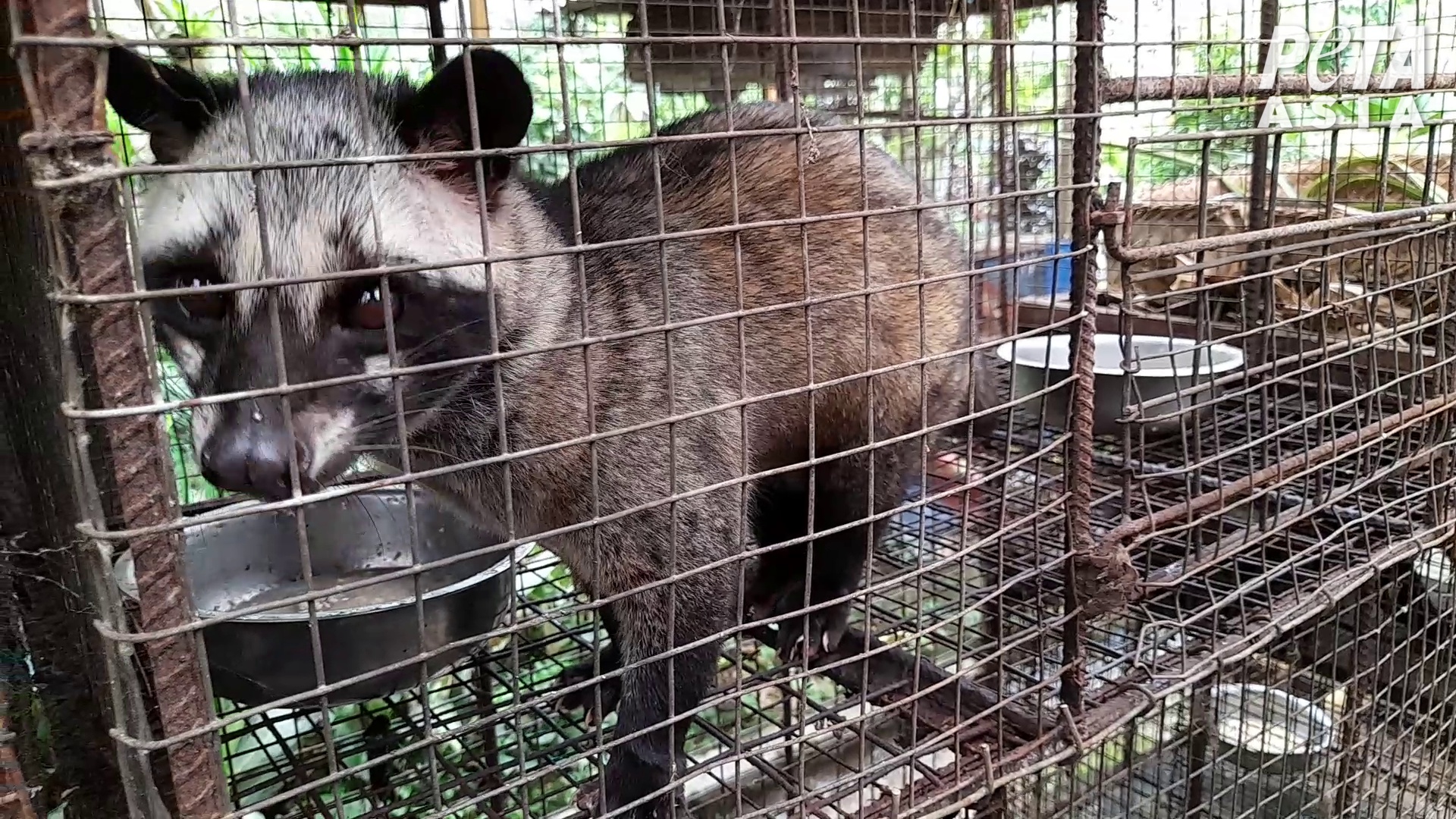
‘Wild-Sourced’ Is a Wild Lie
Since the release of PETA’s multiple investigations into the industry, spanning a decade, many businesses have made the compassionate decision to pull kopi luwak from their shelves and cut ties with this cruel industry. Others, including distributors in Japan, one of the biggest markets for kopi luwak, and retailers in Taiwan, choose to continue profiting from animals’ misery for a novelty product, despite having heard from us about the rampant cruelty.
Customers and retailers are being deceived by producers who deliberately mislabel the beans from captive civet cats as “wild-sourced.” For over a decade, PETA investigators have encountered every trick the kopi luwak industry uses to deceive the public. One farm worker told an investigator, “We label this as wild because even though the animals are caged now, they came from the wild.” Other farmers have openly admitted that gathering enough wild civet cat excrement would be nearly impossible. To mask this, some producers collect a small portion of beans from free-roaming civets, mix it with beans from caged animals, and label the product “wild-sourced.” Others have brazenly told investigators that they simply label the coffee from caged animals as “wild.” The industry knowingly obtains sham certifications or mislabels coffee from captive animals which can then be exported anywhere in the world and sold as “wild-sourced.”
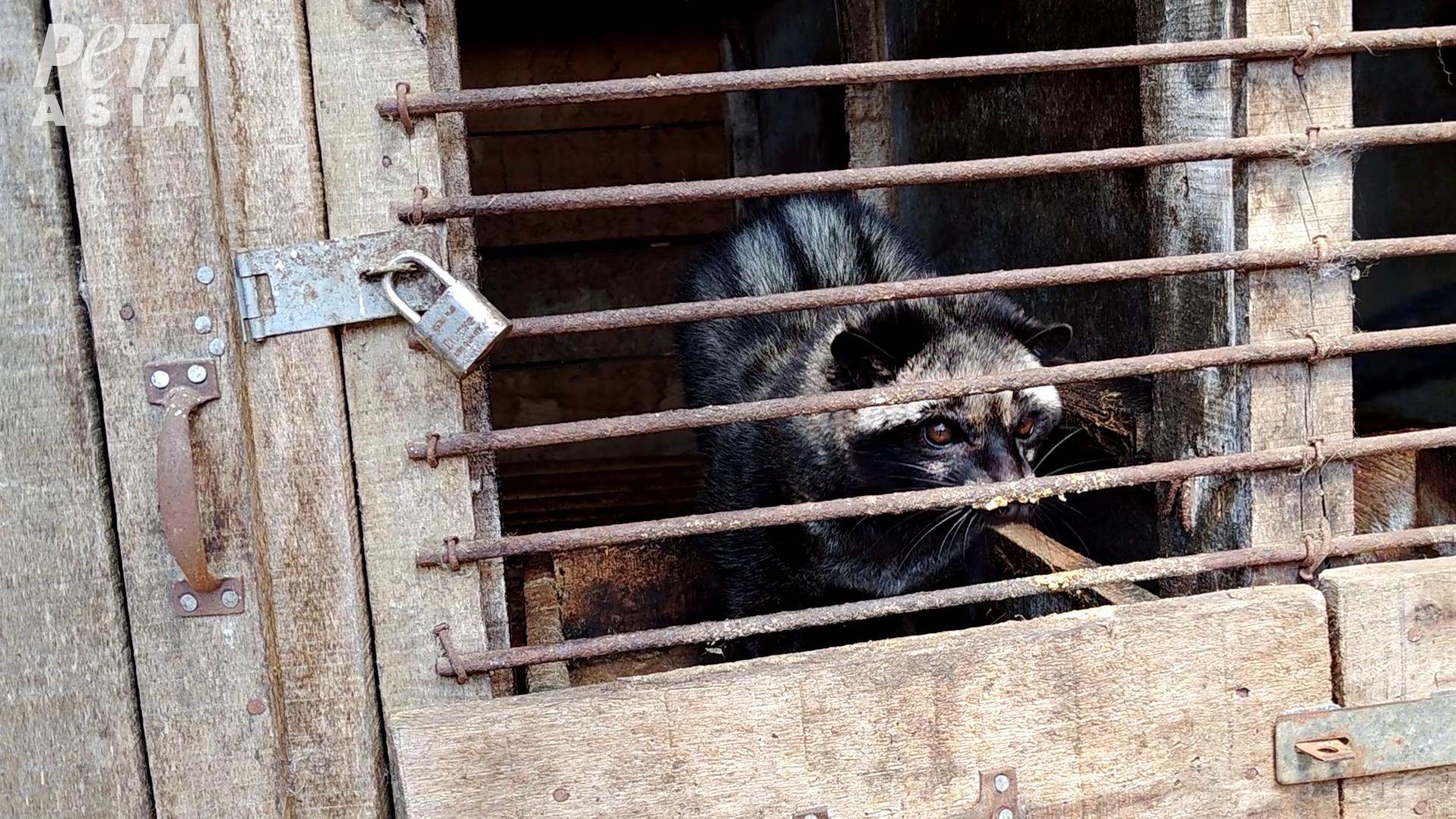
Brewing the Next Pandemic
When animals are caged in their own waste and their immune system is suppressed because of stress, breeding grounds for zoonotic diseases are created. SARS, which has an estimated human fatality rate of around 15%, has jumped from civet cats to humans. Scientists have also identified civet cats as a possible “intermediate host” for COVID-19, potentially allowing the virus to mutate and pass from bats to humans. Civet cats who are “lucky” enough to survive beyond their usefulness to the kopi luwak industry are sometimes sold to live-animal markets, just like the one in which the novel coronavirus is believed to have originated, putting them in direct contact with humans and providing the perfect opportunity for SARS or some other virus to mutate and jump from one host to another.
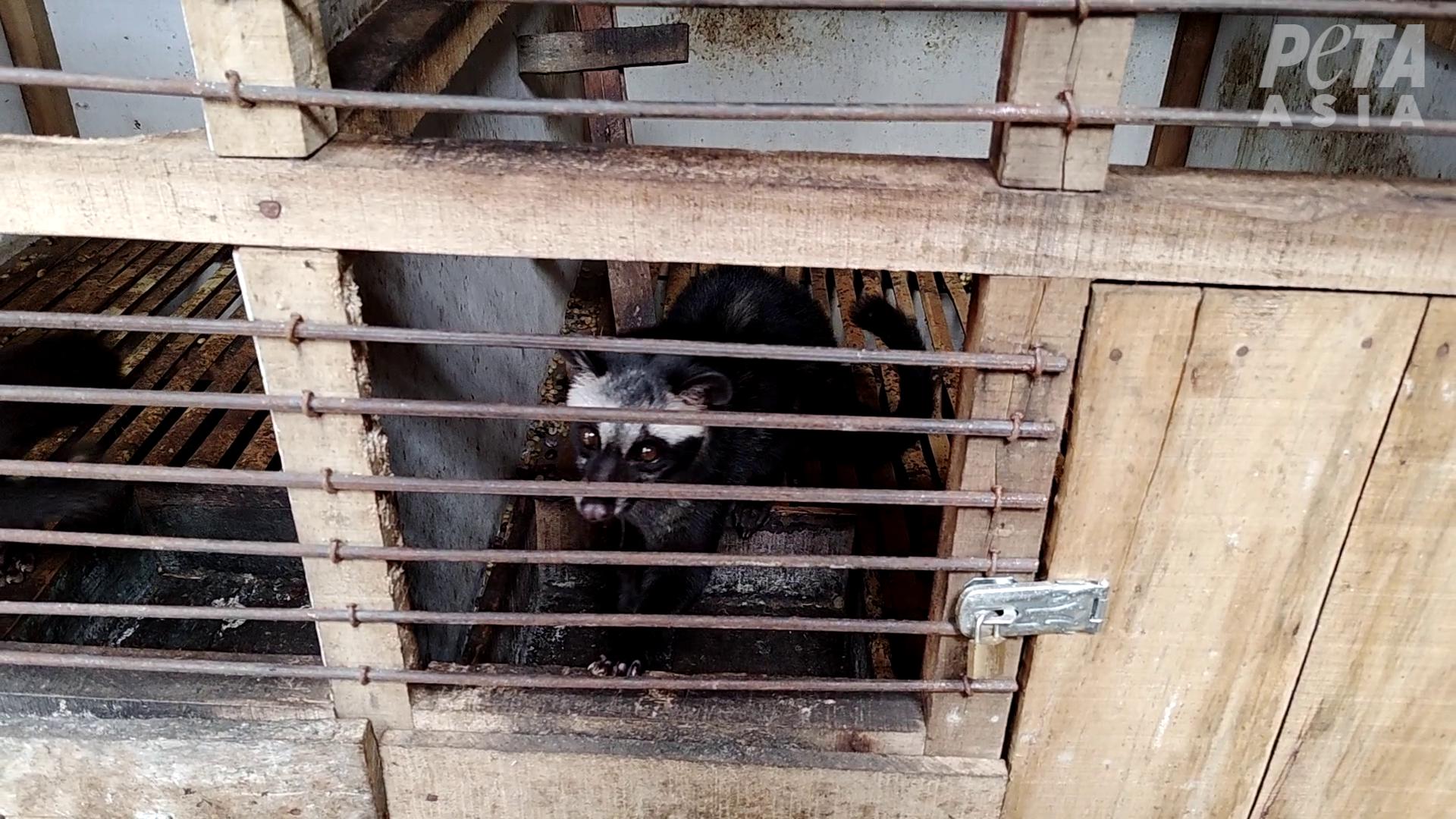

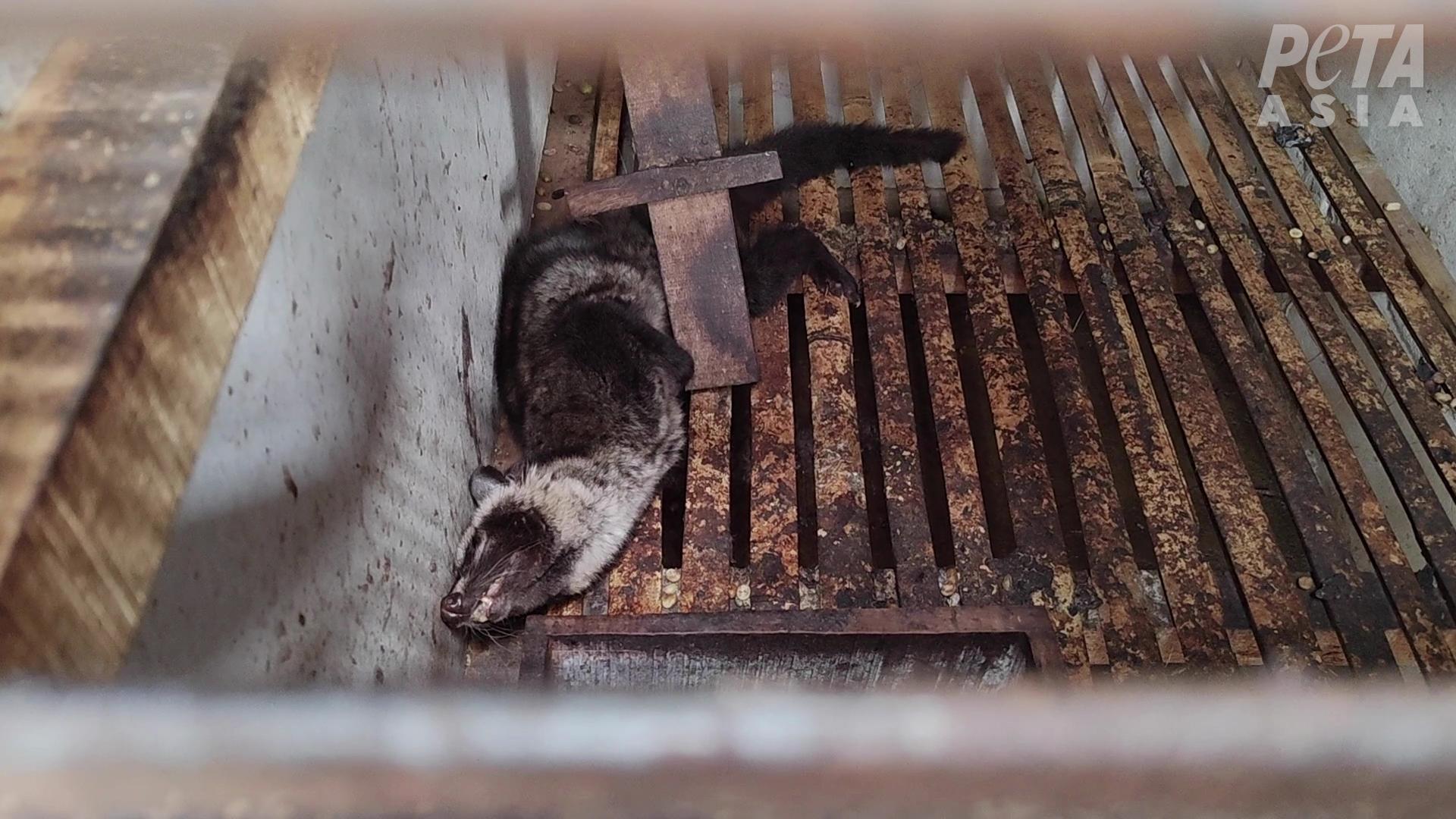
It’s Time to Cut the Crap
Kopi luwak isn’t a delicacy—it’s a disgrace. No matter which country you’re in or what assurances you’ve received, please don’t purchase or drink it.
PETA sent these companies evidence that “wild” civet cat coffee is essentially a lie, but they’ve ignored requests to stop selling it. Please urge them to stop funding cruelty to civet cats by ending the sale of kopi luwak today. In addition, if you see kopi luwak being sold at a retailer, please speak up! Talk to the manager, send the company a letter, and let us know about your actions.